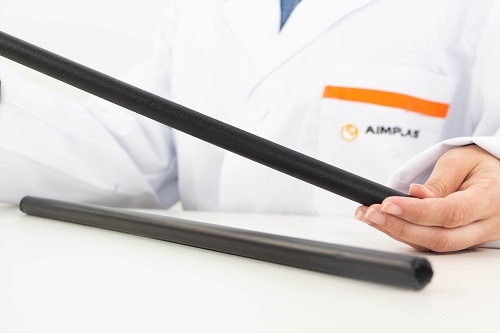Geothermal energy uses the heat stored inside the earth as an energy source for air conditioning systems. It is a renewable energy that is on the rise and has great potential.

GEOCOND Project - Improve the Efficiency of Geothermal Facilities
The GEOCOND project, in which AIMPLAS, the Plastics Technology Centre participates, aims at developing new components for geothermal systems with high thermal-conductivity properties, such as plastic pipes or geothermal probes and fillers of the perforations used in the installation of such systems.
25% Reduction in Installation Cost
In these systems, heat is captured by an underground geothermal probe, which consists of a plastic tube made of polyethylene through which a heat-transfer fluid flows. Among the different possible configurations, those in which the geothermal probe is installed vertically with respect to the ground, need to make boreholes of about 100 meters and drilling for the probes to be installed. Then, these holes are filled with specific fillers. The main cost of these installations lies in the drilling made in the ground.
Reduces the Drilling Depth
The use of new highly temperature-conducting components will improve the efficiency of geothermal facilities. This will reduce the drilling depth made during installation by up to 20 %, with the subsequent economic impact, an estimated up to 25% reduction in installation cost.
The three-and-a-half-year project has already achieved its first results. In the specific case of geothermal probes, AIMPLAS participates in the development and processing by extrusion at pilot plant scale of different plastic formulations with high thermal conductivity. Both the formulations and the conductive pipes will soon be obtained on an industrial scale at SILMA’s and CAUDAL EXTRULINE SYSTEMS’ facilities respectively.
The project, led by the Universitat Politècnica de València, is a European project in which a total of ten companies and bodies from different countries take part. They are experts in different components of geothermal systems, as well as in manufacturing materials. After a year and a half, the consortium met in Italy on the 15 and 16 November, where progress and the next steps were discussed.
The GEOCOND project is funded by the European Union H2020 program, under grant agreement number 727583.